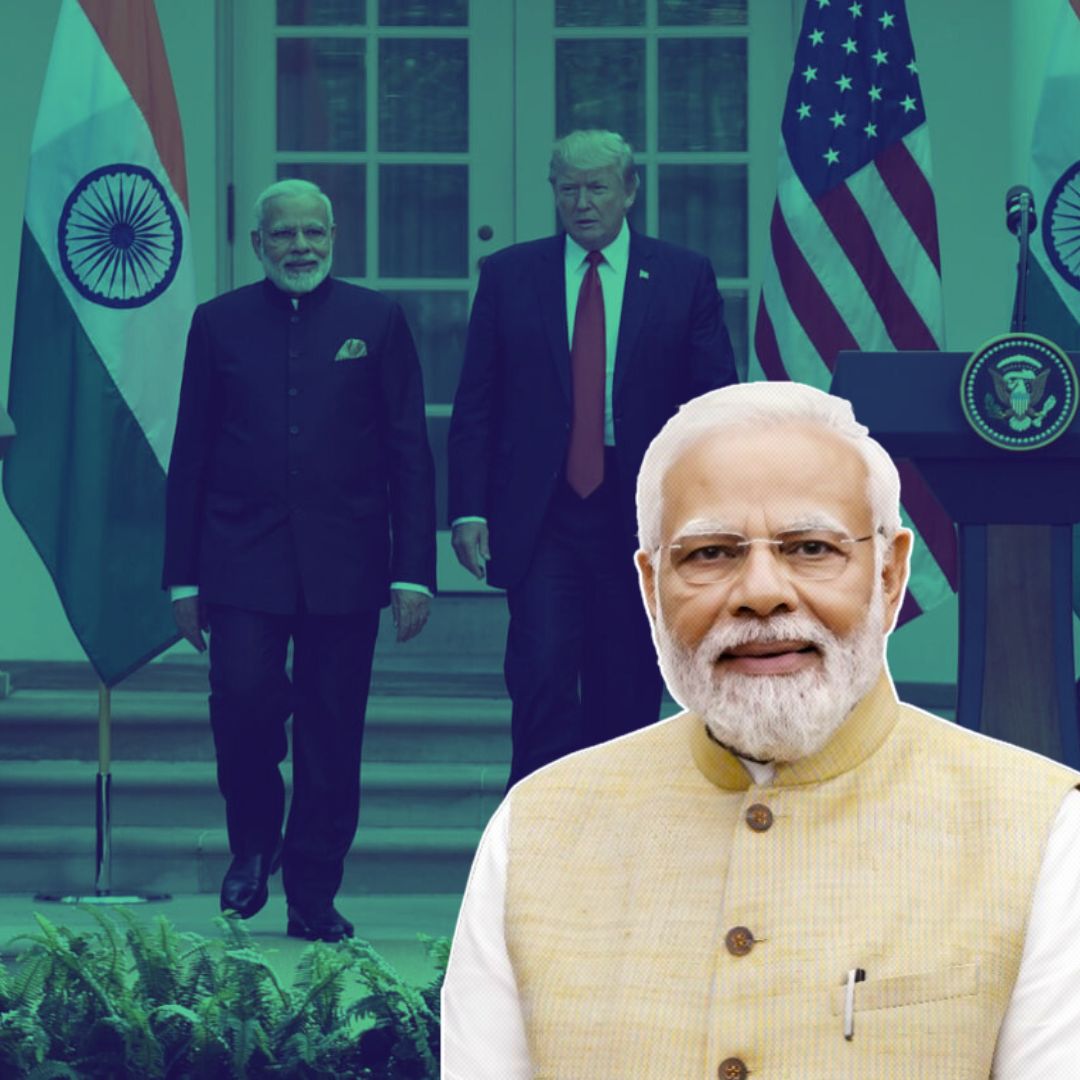On August 2, 2025, Prime Minister Narendra Modi urged Indians to prioritise purchasing Indian-made, “Swadeshi” goods in response to increasing global economic uncertainty, including recent US tariffs imposing a 25% duty on Indian exports. Speaking at a rally in his Varanasi constituency, Modi called for unity across political lines to support domestic manufacturing and consumption, reinforcing his ongoing “Make in India” and “Vocal for Local” campaigns.
Despite not referencing the tariffs directly, Modi’s message aimed to strengthen India’s economic resilience and safeguard its trajectory toward becoming the world’s third-largest economy. His call found support among business associations and government officials who emphasise the critical role of citizen participation to bolster the domestic economy.
Reviving the Spirit of Swadeshi Amid Global Economic Instability
Modi expressed concern over a global economic climate marked by uncertainty and instability. “Countries are focusing solely on their own interests,” he said, implicitly referring to measures such as the US imposing tariffs on India and other nations. Modi urged every Indian citizen to ask a simple question before making purchases: “Now, whatever we buy, there should be only one scale: we will buy those things which have been made by the sweat of an Indian.”
His call for a national movement to promote Indigenous products strongly encourages shopkeepers and traders to pledge to sell only Swadeshi goods, notably as the country heads into major festive and wedding seasons. He framed supporting local production as both an economic imperative and a cultural-national statement, invoking the legacy of Mahatma Gandhi and urging political parties, communities, and industries to work beyond differences for the nation’s economic transformation.
The government is committed to backing farmers, small industries, and youth employment but emphasised collective citizen effort for true national progress.
The Strategic Context: US Tariffs and India’s Economic Priorities
Just days before Modi’s speech, the United States, under President Donald Trump’s administration, announced the imposition of a 25% tariff on Indian exports including textiles, pharmaceuticals, and engineering goods, effective August 7, 2025. This move is part of broader protectionist measures by the US targeting nearly 70 countries, aimed at safeguarding its domestic industries amid geopolitical tensions.
Indian exporters expressed concerns over this move’s potential to disrupt trade relations and hurt key sectors. Modi’s renewed emphasis on “Swadeshi” reflects India’s strategic response: bolstering internal demand and reducing dependence on volatile international markets.
This aligns with the government’s long-standing “Make in India” initiative launched in 2014, which seeks to boost manufacturing’s share of GDP, increase employment, and improve ease of doing business. In the current geopolitical landscape, the campaign has taken on new urgency as a tool for economic security and resilience.
The Logical Indian’s Perspective
At The Logical Indian, we recognise the importance and timeliness of PM Modi’s appeal to reclaim and promote indigenous production in these uncertain global times. Supporting local industry can empower small businesses, artisans, and farmers, ensuring that economic benefits reach the grassroots level.
However, this call for economic nationalism must be balanced with openness to international trade, innovation, and quality standards to ensure India’s sustained global competitiveness. Swadeshi should not translate to isolationism but rather a strategic choice to strengthen self-reliance while engaging fairly with global partners. The ultimate goal should be inclusive growth that uplifts all segments of society.
भारत को आत्मनिर्भर बनाने के लिए हमें वोकल फॉर लोकल के मंत्र के साथ आज यह संकल्प भी लेना होगा… pic.twitter.com/yCaxUNr3dA
— Narendra Modi (@narendramodi) August 2, 2025












